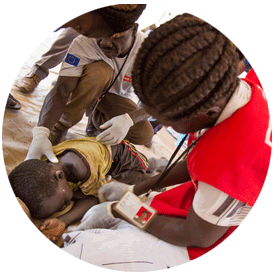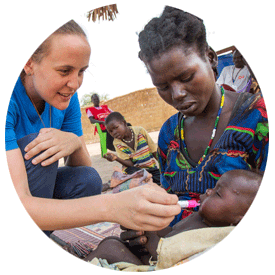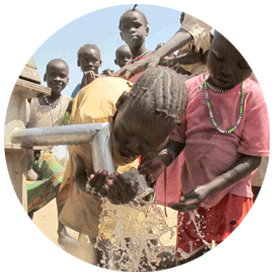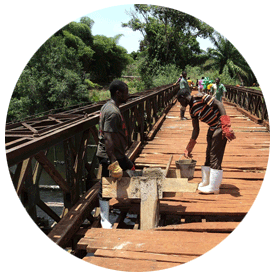How I Became A Humanitarian Aid Worker
Pete H. is Medair’s Programme Funding & Communication Manager in DR Congo. He answers some frequently-asked-questions about his journey to becom…
 Read more
Read more
At the end of 2018, the UN estimated that the number of people in need of urgent aid was 12.8 million.
This is where we come in.
DR Congo now has more internally displaced people than any other African country. Families fearing violence flee to neighbouring villages or towns, where they often live in unsanitary conditions and are vulnerable to exploitation.
In many instances, people who flee lose the home and livelihood they left behind. Each day they struggle to meet their basic needs while worrying about health and security, and waiting for news about when it may be possible to return home.
An Ebola outbreak in Eastern DR Congo has added to the complexity: by March 2019, more than 1,000 cases of Ebola had been recorded.

Rapid Responses
We continuously look out for emergency alerts, then quickly assess the needs, and launch tailored responses to reduce disease and deaths among people affected.
![]()
Ebola Response
Today, DR Congo is undergoing the second-largest Ebola outbreak ever recorded, presenting significant challenges never before faced because of its location in areas that are both remote and insecure. Medair is one of the international organisations involved in the response and has doubled the size of our team in the affected areas as we increase our efforts to contribute to the response. On February 22nd, Medair opened a transit centre at Oicha referral hospital, in Nord Kivu.

Health & Nutrition
We help health facilities provide quality services to the most vulnerable based on who needs care rather than who can afford it. Specifically, we target health facilities in the hardest hit areas, where needs are higher due to disease outbreaks and population displacement.

Improved Sanitation, Hygiene, and Access to Water
We work in communities, schools, and health facilities to improve water, sanitation, and hygiene facilities and practices. This is vital to health facilities caring for patients safely, and halting the spread of deadly but preventable waterborne diseases such as cholera and other causes of diarrhoea.

Infrastructure
We also support health facilities by strengthening or rebuilding infrastructures such as maternity wards or adding consultation rooms.
![]()
309,983
Patient consultations provided at Medair-supported health clinics
![]()
142,694
People gained improved access to safe drinking water
![]()
86,574
People received improved latrines or bathing facilities
*in 2017

OUR SUPPORTERS
Generous gifts from people like you
EU Civil Protection and Humanitarian Aid
Swiss Agency for Development and Cooperation
US Agency for International Development
United Nations Children’s Fund